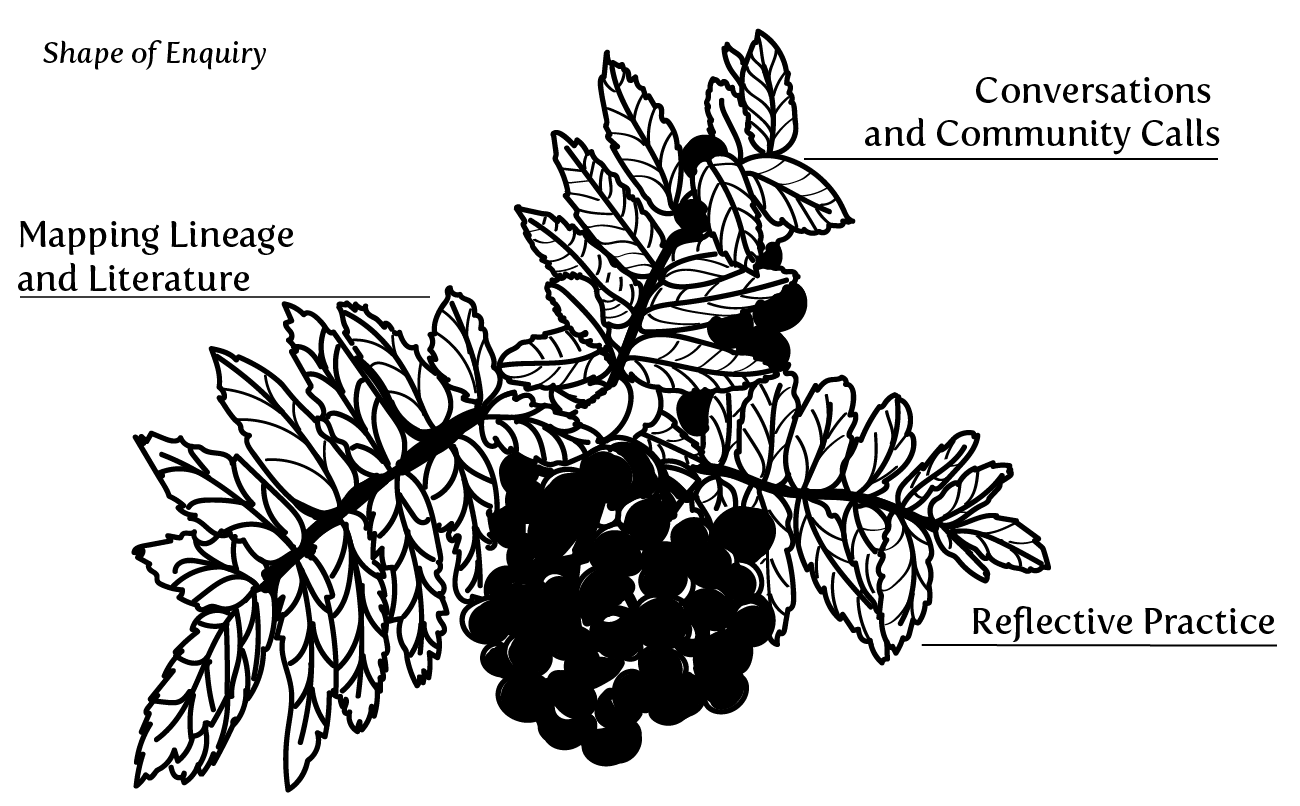Through our multidisciplinary practice and community research, our emerging pedagogy guides four grief enquiries across a cyclical, seasonal year. As we fold into autumnal offerings, our latest enquiry turns to chronic illness and grief, in collaboration with
. Read on for the emerging framework of our enquiry, and for details of our Open Call for contributions.“Why does an experience common to 40% of the population (26 million people in the UK have a chronic illness) have no place in mainstream culture?”
- Emily Bazalgette,
: a newsletter that explores and bears witness to chronic illness grief.
Grief with its roots in chronic illness has long been tended in communities connected through chronic illness and its allied experiences. Tucked into hashtags and forums, and noticed and validated in the margins, navigating health and care at the intersection of sickness leaves little room or resource to grieve. Our enquiry, active from June to December 2023, is shaped by the questions we are holding:
What do grief experiences related to chronic illness look like?
How do existing models of grief intersect with chronic illness?
How is the grief of chronic illness facilitated?
Is grief related to chronic illness a disenfranchised grief, and how do we recognise and integrate these griefs for ourselves and our communities?
How do you nurture grief alongside fluctuating energy, pain and sickness?
These questions, and our enquiry more broadly, are ever fluctuating. We know grief x chronic illness will ignite different things for different people, from different angles, perspectives and experiences. We also know the breadth of our enquiry will likely raise more questions than possibilities at this stage. As we follow the unfolding path of our enquiry, we hope to maintain an expansive approach to welcoming some of those wider elements and perspectives, within the capacity we hold between us.
Our methodology comprises three strands: mapping lineage and literature, conversations and community calls, and reflective practice. Our enquiry coincides with the recent launch of
; edition #2 begins the process of mapping lineages of chronic illness and grief. Keep an eye out for further posts from Navigating the Wilderness, and GriefSick, for wider reflections on our methodology and expanding enquiry.Open Call
As part of our grief x chronic illness enquiry, we want to hear from you. Our enquiry will be published in zine format in December, and we hope to broaden our collective understanding of grief relating to chronic illness. We welcome words, images and creative contributions, in response to ‘grief x chronic illness’.
How do I submit my contribution?
Contributions can be sent via email: cass@navigatingthewilderness.com
Audio and video contributions are welcome, but may need to be represented in print form if selected. We will work together to decide how to best incorporate your submission.
When is the deadline?
27th October 2023
What will I get in return?
Contributions selected for inclusion will receive a printed copy of our zine publication, and an honorarium of £10, as per Navigating the Wilderness’ funding and resource structure.
All submissions will receive acknowledgement in our publication.
I’m not a writer or artist, is this for me?
Yes! We want to hear from you, your experience and perspective is uniquely valuable. Our community research approach welcomes scraps of works, thoughts saved in notes apps, and unfinished pieces.
Navigating the Wilderness has some capacity for 1-1 grief spaces, facilitated on zoom, at community pay as you can rates. If you would like to access support in navigating your grief(s), email cass@navigatingthewilderness.com, re: grief space enquiry.







This co-enquiry is giving me so much life at the moment, the voicenotes, the space to reflect, getting to explore so freely with you, it's so dreamy. Looking forward to all the contributions :-)
https://youtu.be/dGffs9wq-Us?si=-rGQxj9zsngP5h88
A podcast, Grief Stories, about ME/CFS and chronic illness. I haven't been able to listen to it because I can't listen to speech for long, but my friend played a song in it, she's a singer songwriter who ought to be famous in the chronic illness community. Her lyrics are relatable, and we don't have anything in mainstream culture like it.